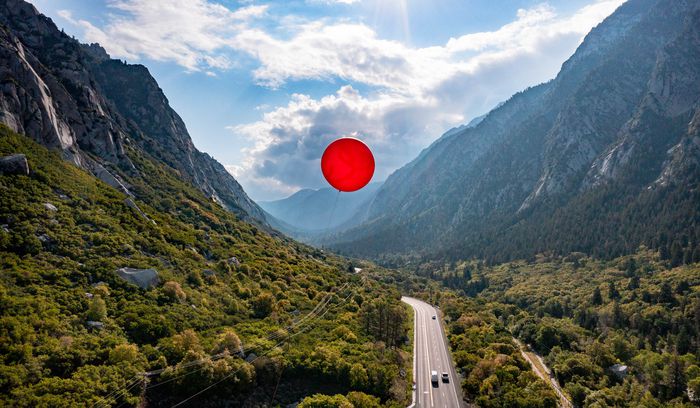
Activists protesting the proposed Little Cottonwood Canyon gondola gathered at the mouth of the canyon on Saturday and floated four big red balloons attached to spools of twine measuring 236-feet—the estimated height of the to-be-approved gondola towers. They filled four spherical balloons, each about three feet in diameter, with helium from a tank that environmental lawyer Pat Shea rented and carried in the back of his SUV, according to The Salt Lake Tribune.
The gondola is one of two proposals that the Utah Department of Transportation is considering to combat traffic congestion in a canyon that’s home to two of Utah’s most popular ski areas (Alta and Snowbird) and year-round hiking, cycling, and other recreational activities. It seems like the ski areas are more in favor of this option. The ‘other’ proposal is for enhanced bus service through the canyon and widening State Highway 210 to help squeeze in extra bus traffic. Both proposals would cost at least $500 million to build and would be massive construction projects.
In recent weeks, operators of several of the ski resorts have said that they are in favor of the gondola plan, while Salt Lake County Mayor Jenny Wilson said she prefers the expanded bus service, according to the Salt Lake Tribune. Building 20 towers to transport a gondola would “completely change the character of this canyon,” Alex Schmidt said, campaigns coordinator for Save Our Canyons, who organized Saturday’s balloon demonstration.
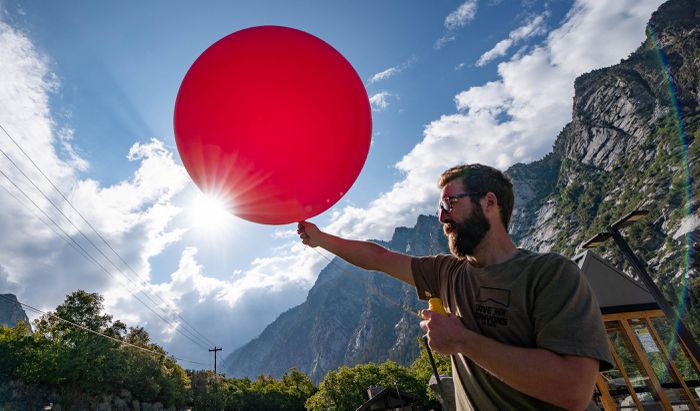
After flying balloons at the mouth of the canyon, some activists ventured further up Little Cottonwood to the White Pine trailhead to fly balloons because it is one of the canyon’s most popular backcountry trailheads. They chose White Pine specifically because it’s a zone that the proposed gondola would pass directly over and not stop at—a zone that a lot of people use and that a gondola would not do any good, since they’d have to get off the gondola at Alta or Snowbird and then backtrack at least a mile or more to the trailhead.
“It’s really only servicing two resorts and their patrons,” Schmidt said. “[Alta and Snowbird] are important for our economy, and for use. But it does not do anything for year-round, dispersed, and developed transportation access. How is this a benefit for all the public landowners in this canyon?”
The balloon-flying at White Pine didn’t go so well. One of the balloons popped as demonstrators were getting it out of the car, and then the next one they managed to get up in the air got caught in a stand of aspen trees, and popped there. Demonstrators then had to walk over and pick up shards of red latex, according to The SLT.
Many, including demonstration organizer Alex Schmidt, are concerned that neither the gondola nor the widened road and enhanced bus service will achieve UDOT’s goal of reducing traffic congestion by 30% in Little Cottonwood Canyon. Many don’t want UDOT to do anything and would prefer to leave the road and canyon ‘as is.’
View this post on Instagram
A post shared by Wasatch Backcountry Alliance (@wasatchbackcountryalliance)
More information about UDOT’s plan to reduce traffic in Little Cottonwood Canyon:
In 2020, the Utah Department of Transportation announced three possible strategies to help reduce traffic in Little Cottonwood Canyon (U.S. Highway 210): a cog railway or a gondola to shuttle visitors to ski resorts Alta and Snowbird, or a new and improved bus system to shuttle more skiers up the canyon.
And out of the three proposed options, the gondola appeals the most to Utah’s governor Spencer Cox. Deseret News reports that Cox said it would be “cheaper than the train solution, but more expensive than the bus solution.” He also said it would be more “weather immune” because heavy snowfall, as well as avalanches and avalanche control, all increase traffic in the canyon, often causing painfully long lines of skiers waiting in their cars on the gridlocked highway.
“Just the ability to move people at such a high rate of speed and get people up and down very quickly—it’s much more efficient than the bus system would be,” Cox said to an interviewer with Deseret News. “And it also has the support of the partners and the ski resorts. There’s a willingness there for them to participate on the private side to reduce the cost to taxpayers, so there’s an opportunity to bring those costs down as they pay for some of that as well.”
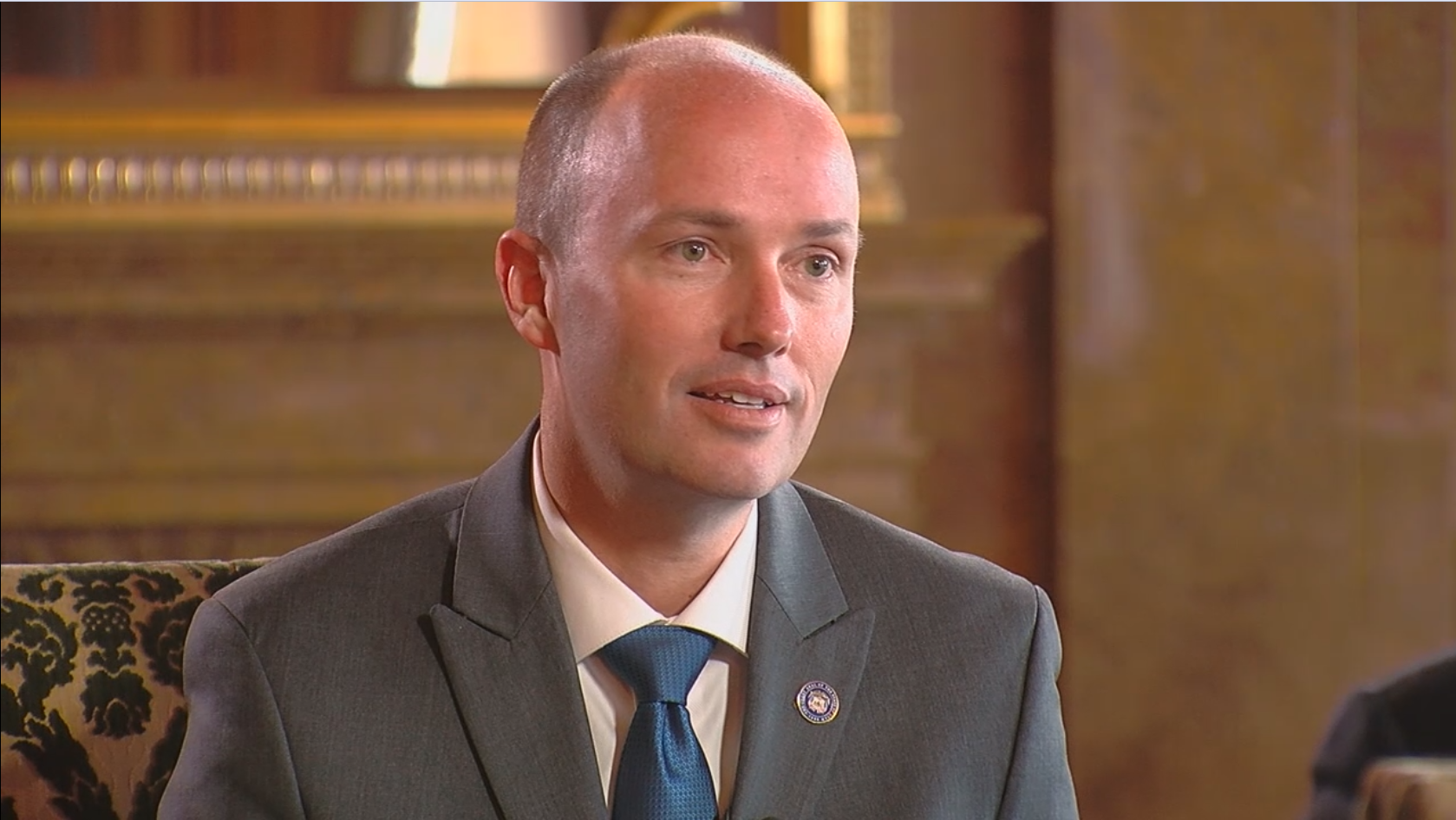
Gov. Cox also thinks a gondola would benefit canyon recreation in the summer along with the winter because it could become a “tourist attraction in and of itself.” Apparently, he is leaning in the direction of a canyon gondola at this time but is still a ways away from making a final—very expensive—decision.
Although Cox favors improving transportation up the canyon with the gondola, not everyone is convinced that any of the three proposals have the canyon’s best interest in mind. According to the Deseret News, all options were immediately denounced by conservation organizations and backcountry enthusiasts who say “they are an attempt to turn the canyon into an amusement park.”
The Wasatch Backcountry Alliance—a recognized voice for the backcountry community involved in human-powered winter recreation in the Central Wasatch Mountains—wrote the following in a Facebook post concerning the Utah Department of Transportation’s 2020 announcement to improve canyon travel:
“The Wasatch Backcountry Alliance is concerned the shiny appeal of an expensive train or gondola system may distract us from our goals or actually make things worse,” Brad Rutledge said, co-founder of the organization and current board member. “These solutions not only miss the target on making things better, but the train and gondola concepts threaten many of the things that make the Wasatch Mountains so amazing today.”
The three options proposed by state officials come as a result of more than 6,500 public comments and will be included as alternatives as part of the Little Cottonwood Canyon draft environmental impact statement, according to Deseret News.
If Gov. Cox approves the gondola, it would have a base station in Sandy, where visitors would park in a proposed 1,500-space structure on the west side of North Little Cottonwood Road at La Caille. The gondola would allow direct transportation eight miles up the canyon to Alta and Snowbird and take an estimated 30-40 minutes to get there.
But if legislators decided to go with the cog rail, it would start from the same Sandy base station as the proposed gondola and parking structure. It would include a diesel-powered train with a cogwheel on a track underneath, giving direct service to Alta and Snowbird.
And if they decided on buses, there would then be 24 buses going up to the resort at six buses per hour.
All options raise environmental concerns for the canyon’s watershed. Canyon enthusiasts such as the Wasatch Backcountry Alliance and Save Our Canyons say that these options will bring too many visitors to the already popular Little Cottonwood Canyon and ruin it. Gov. Cox, on the other hand, believes it would help drive tourism and economic gain for the state of Utah.



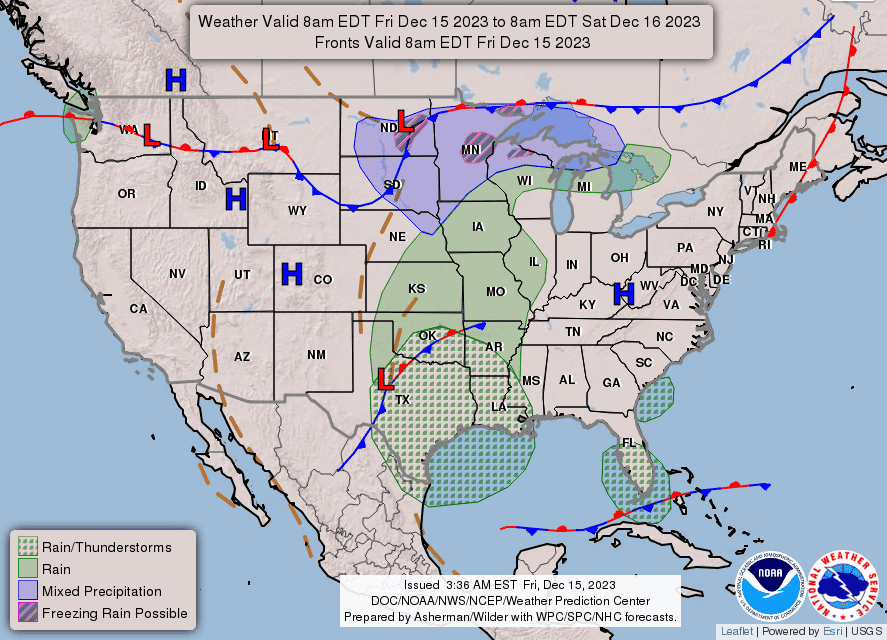
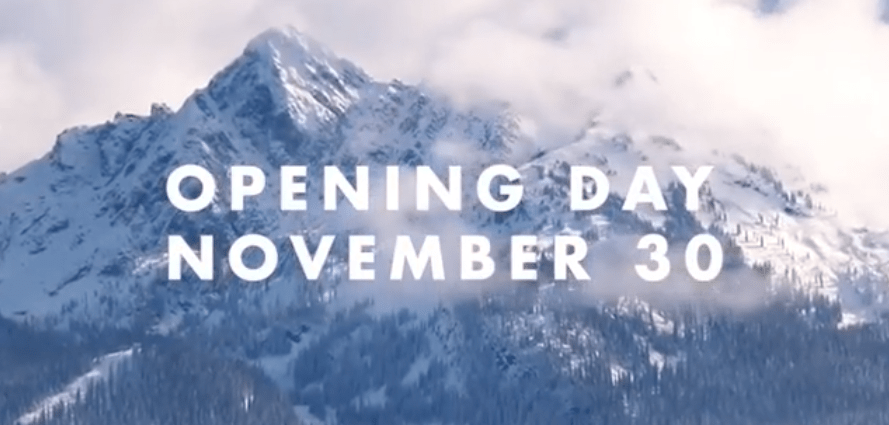

Tree huggers are so dumb. They protest new roads. They protest trains. They protest gondolas (keep squaw true is included).
We should give them their own island so they can protest themselves.